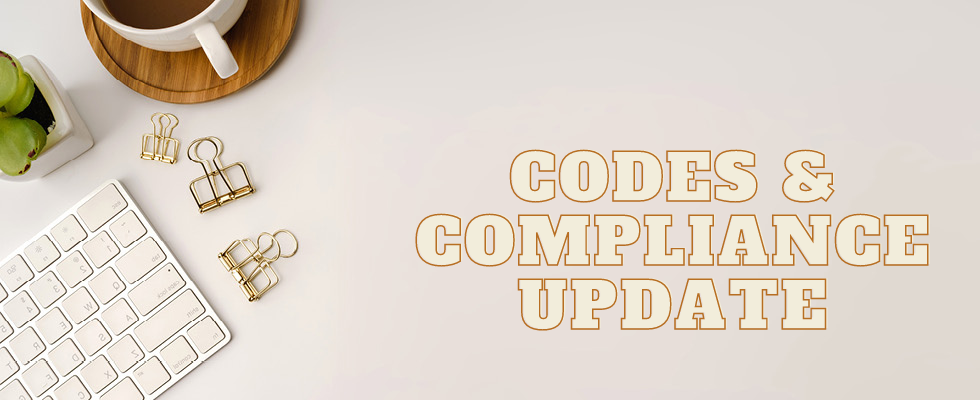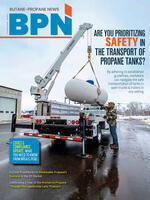
What’s the latest in the realm of codes and standards for the propane industry, and how might any changes affect you, the marketer? In this codes and compliance update, we hear from both counterparts of the regulatory sector with insights on what the National Propane Gas Association (NPGA) and the Propane Education & Research Council (PERC) are focusing on in 2024 and what they see as the most important things for you to know about as you conduct business in the new year.
Alex Smith, director of codes and standards, NPGA
Are there recent updates to codes and standards that need to be top of mind for the industry?
Currently, most codes and standards work is around lowering carbon emissions. NPGA is proud to represent propane in those efforts. Propane is a clean, methane-free fuel with zero ozone depletion potential and has been approved as a clean fuel by the Clean Air Act.
What regulatory entities are you working with as updates come through? What has that entailed?
NPGA works with a variety of federal agencies, including the Department of Energy and the Department of Transportation, on codes and standards issues. NPGA also works with a variety of partners including PERC; American Gas Association; American Public Gas Association; Air-Conditioning, Heating and Refrigeration Institute; and Pacific Northwest National Laboratory.
How are code updates being communicated to the industry?
NPGA frequently provides guidance and updates on codes and standards-related issues to our members via electronic updates, online forums and meetings.
What else are you keeping an eye on as we head into 2024?
Propane’s role in energy generation is an opportunity for the industry for 2024 and beyond. NPGA is working to expand the use of propane for energy generation. NPGA member companies are committing millions of dollars annually on research and development of technologies in these efforts to reduce emissions and provide a low-carbon future for our industry while ensuring a safe, reliable and resilient energy supply that provides the affordable energy so many of our businesses and families need.
Eric Kuster, senior vice president of safety, PERC
Are there recent updates to codes and/or compliance rules and practices that need to be top of mind for the industry?
New editions of both National Fire Protection Association (NFPA) 58 and NFPA 54 have just been released in 2024, so there are a lot of new codes that have just gone into effect. Some of the main changes are outlined ahead:
NFPA 58:
- Addition of a new Chapter 16 to cover the installation of liquefied petroleum gas (LPG) systems on mobile food facilities, such as food trucks for design and installation of the propane container, piping and appliances. The new chapter includes annual documented leak check and training requirements for operators.
- Revisions to the installation of horizontal containers requirements to more clearly cover the different types of installations of different sizes of horizontal containers based on the container support.
- Requirements for purging of LPG systems in bulk plants into and out of service added to the operations and maintenance chapter.
- Revisions to clarify that containers, piping and associated equipment that supply manufacturing, plant oil extraction or liquid fuel blending are under the scope of NFPA 58, while the manufacturing, plant oil extraction or liquid fuel blending processes themselves are outside the scope.
- Self-service autogas — Currency, membership cards, credit cards or any other means can be used to initiate the activation of a self-service engine fuel dispenser. K15 nozzles and a UL 495 listed dispenser are required, although no formal training is needed. Instructions must be posted and output pressure of system cannot exceed 350 psig.
- Mobile vehicle fuel tenders — Fuel tenders must be placed on level concrete pads, paved surfaces or firm earth for temporary service. Combustible materials need to be kept 10 feet away and flexibility in piping is required.
- Reinforced thermoplastic pipe — Used for outdoor, underground piping for liquid or vapor service; installation and mechanical joints are made with a proprietary tool and in accordance with the manufacturer’s instructions.
- Consolidation of requirements for emergency remote shutdown devices into Chapter 4 so that all the requirements for the devices are uniform when an emergency remote shutdown device is required.
NFPA 54:
- Added definition for the term interruption of service — “3.3.61 Interruption of Service: Disconnection or discontinuation of fuel gas to the point of delivery.”
- Updated purge fuel gas piping requirements
- Revised Annex G includes information on how to check for combustion air and vent drafting for Category 1 appliances.
- Additional annex material helps explain how to determine air changes per hour in modern buildings.
How can propane marketers expect these updates to affect them this year?
With the update of both major NFPA codes that impact the propane industry in the same year, marketers need to be aware of adoption of the codes in their states along with any exclusions or additions states may adopt. Many states automatically adopt the new editions of these codes when they are released, so the changes are already in effect in these states.
What can marketers do on their end to navigate the compliance landscape?
Both PERC and NPGA have compliance resources that can be utilized by marketers to address changes, and state associations are the tip of the spear on state-specific regulations. Marketers should look to all of their resources for assistance with new codes and compliance resources and be on the lookout for information on these changes that are being sent out.
Are there any tricky spots marketers might run into?
Two tricky spots we see for marketers include the new food truck requirements and clarification about the filler’s responsibilities regarding the new food truck codes, as well as the new definition of interruption of service and how authorities having jurisdiction will interpret the new definition in relation to out-of-gas situations.
How is PERC working to communicate with marketers on codes and compliance updates for 2024 and beyond?
PERC has compliance information in the Learning Center that includes a comprehensive compliance manual that covers several different compliance issues, as well as our monthly “Safety Matters” newsletter that updates marketers on new programs and safety issues. PERC also hosts an annual National Propane Education & Training Conference; this year, over 130 industry professionals will be updated on the latest code, regulatory and educational/training programs during the conference. PERC will also be updating technical training materials to reflect the new code changes.
What else are you keeping an eye on as we head further into 2024?
Regulations and codes as they apply to new equipment and technology. Right now, there are many new products — outdoor living, electrical generation, material handling, autogas, and renewable propane and propane blends — that are becoming available. Many of these have unique needs regarding the application, installation or maintenance of propane systems and equipment.
A good example is propane-powered electric generators. Installers may not be aware that these generators have high-demand requirements — especially during start-up — that require specific pipe sizing and regulator placement as recommended by the manufacturers. With the rapid changes in equipment design and use, regulatory and code changes do not seem to be able to keep up. So, we are proactively looking at ways to help educate the industry so marketers can take advantage of new opportunities to provide clean, efficient and affordable energy options to their customers.


